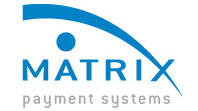January 24, 2007
Attorneys specializing in credit card/payment processing
Article published in Issue Number: 070101
Forum
Merchant needs counsel
I've been a subscriber of your magazines since I began in the processing industry, and I have a question. What attorney can you recommend to defend a merchant in a large chargeback dispute?
Thanks, Bill Hoidas Matrix Payment Systems
Bill,
The Green Sheet Inc. does not recommend individuals or companies. However, following are some attorneys we know of (listed alphabetically by last name) who specialize in payments industry-related issues:
Adam Atlas
514-842-0886
atlas@adamatlas.com
Theodore F. Monroe
310-694-8161
monroe@tfmlaw.com
Anthony L. Ogden
661-775-8527
tony.ogden@bankcardlaw.com
Paul A. Rianda
949-261-7895
paul@riandalaw.com
Holli Targan
248-727-1460
htargan@jaffelaw.com
Editor
January 11, 2007
Payments 2006: A tumultuous, tantalizing mix
![]() From a temblor-like shakeup of card Association foundations to an enigmatic, grand-scale security breach, 2006 relandscaped the payments world.
From a temblor-like shakeup of card Association foundations to an enigmatic, grand-scale security breach, 2006 relandscaped the payments world.
As the card Associations shed old habits, national merchants and consumers alike tested new payments modi operandi: card waving instead of swiping; lattes bought on credit; Google as a payment vehicle; and loyalty cards multiplying like rabbits in wallets.
Changes were apparent in terminology, too. MasterCard International became MasterCard Worldwide and morphed into a corporation by taking itself public in May.
In October, Visa International said it would follow suit, announcing plans to unify its continentally partitioned organization and dissolve its current member-bank structure to become a corporation. Once this occurs, the term "Association" will be industry history.
Bleak house of bankcards
A class-action lawsuit filed by a coalition of convenience stores, drug stores and community grocers against card Association interchange fees lurched along. Pumped into action, Congress heard merchants' complaints and convened committees. But lacking the political will to legislate interchange controls, representatives and senators simply harrumphed their views on rate-setting.
A sparsely attended post-Valentine's Day House subcommittee session on interchange was anything but a love-in. "The success of the banks' legally suspect practices has given them tremendous market power," said Edmund Mierzwinski, Consumer Program Director at U.S. Public Interest Research Group.
Expressing the contrary view, lobbyists for the Electronic Payments Coalition and others urged lawmakers not to impose rate controls.
In July, bipartisan members of the Senate Judiciary Committee messengered engraved invitations to the legal counsels of Visa and MasterCard for a hearing on interchange policies.
Senators expressed displeasure with merchants' powerlessness over bankcard acceptance terms and then held the attorneys' feet to the fire.
While no legislative action was forthcoming, Congress' sudden interest in rate-setting had the desired effect: The Associations did an about-face on some policies, making their interchange rates public shortly thereafter.
The long, unwinding road
In April, merchants added debit cards to their class-action lawsuit against Visa and MasterCard credit card interchange fees.
The Associations see unwinding their member board structures as a way to preempt future liability from merchant lawsuits. They will then strive for shareholder profits over bank revenue, liberating rate-setting in the process.
While most ISOs looked for cover in the spat between retailers and the card Associations, a few championed the former. In September, Bill Hoidas Sales Manager and Director of Product Development for Matrix Payment Systems http://paymentconsulting.net/ is one of the crusaders.
Some have suggested in a public forum that investors petition the card Associations "to drop interchange immediately."
Meanwhile, merchants waited to learn whether the federal government will devour a chunk of their $3 billion proceeds from the Wal-Mart suit, settled in 2003. It threw out the card Associations' "honor all cards" rule. Negotiations between the plaintiffs and the government, which filed a claim at the beginning of 2006, were set to conclude Dec. 22.
Approximately 1 million settlement checks have been sent to date, but many of those were divvied up among multiple merchants, such as franchisees, according to Lloyd Constantine, Lead Counsel for the plaintiffs.
Payouts averaged $1,000 per recipient, he added. Some have received millions of dollars, and 35,000 merchants are expected to receive less than $5 apiece. The actual number of merchants involved could be as high as 2 million.
--Bill Hoidas
District Sales Manager
Larger B2B/MOTO/Internet Accounts
Product Development Manager
Matrix Payment Systems
(847) 381-3482 office
(847) 381-4289 fax
http://paymentconsulting.net
John 3:16 For God so loved the world, that he gave his only begotten Son, that whosoever believeth in him should not perish, but have everlasting life.

